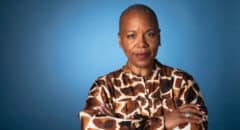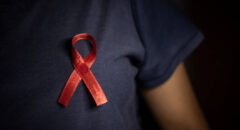
Johneri’O Scott was 24-years-old when he found out he was HIV positive. He thought it was a death sentence.
“I knew nothing about it before I was diagnosed,” he said. “I thought my life was over before it really even started.”
He represents a large group of Black people that know little to nothing about AIDS/HIV.
The CDC reports 1 in 7 African Americans living with HIV are unaware of their diagnosis. Without knowing they have HIV, they cannot take advantage of the treatments that can lead to viral suppression and prevent them from unknowingly transmitting the virus to others.
Data also show that African Americans are disproportionately affected by HIV. Although they represent only 13% of the US population, they account for 43% of all new HIV diagnoses.
- Among all women diagnosed with HIV in the US, African American women account for 59% of new HIV diagnoses.
- African American gay and bisexual men represent 37% of all new HIV cases .
- New HIV cases are steadily rising specifically amongst African American millennials ages 24-35.
What is HIV?
According to the latest statistics from the Centers for Disease, Control, and Prevention, around 36.7 million people are living with HIV around the world. While there have been many advancements in the management of the HIV virus throughout the years, unfortunately, a lot of misinformation still exists about what it means to live with HIV. First identified in 1981, HIV is the cause of one of humanity’s deadliest and most persistent epidemics.
Human Immunodeficiency Virus (HIV) is a virus that attacks cells that help the body fight infection. There's no cure, but it is treatable with medicine.
HIV (human immunodeficiency virus) is a virus that attacks cells that help the body fight infection, making a person more vulnerable to other infections and diseases. It is spread by contact with certain bodily fluids of a person with HIV, most commonly during unprotected sex (sex without a condom or HIV medicine to prevent or treat HIV), or through sharing injection drug equipment.
If left untreated, HIV can lead to the disease AIDS (acquired immunodeficiency syndrome).
The human body can’t get rid of HIV and no effective HIV cure exists. So, once you have HIV, you have it for life.
Treatments for HIV
Although there’s no cure, taking HIV medicine (called antiretroviral therapy or ART), people with HIV can live long and healthy lives and prevent transmitting HIV to their sexual partners. In addition, there are effective methods to prevent getting HIV through sex or drug use, including pre-exposure prophylaxis (PrEP) and post-exposure prophylaxis (PEP).
What Is AIDS?
Per the Center for Disease Control (CDC) AIDS is the late stage of HIV infection that occurs when the body’s immune system is badly damaged because of the virus.
In the U.S., most people with HIV do not develop AIDS because taking HIV medicine every day as prescribed stops the progression of the disease.
A person with HIV is considered to have progressed to AIDS when:
- Without HIV medicine, people with AIDS typically survive about 3 years.
- Once someone has a dangerous opportunistic illness, life expectancy without treatment falls to about 1 year. HIV medicine can still help people at this stage of HIV infection, and it can even be lifesaving.
How do you know if you have HIV/AIDS?
Testing is the only way to know you have either viruses and fortunately, testing is relatively easy. Most healthcare providers, medical clinics, substance abuse programs, community health centers, and hospitals offer tests. At home tests are also a great way to know your status as well.
For a large number of those diagnosed, individuals feel isolated and lonely. The Black community especially has a peculiar relationship with AIDS and HIV. Fortunately, this wasn’t the case for Johneri’O.
“It was crazy. It was definitely but scary but finding out my diagnosis made me stronger. I went straight home from the clinic and told my mom,” he said. “I grew up in the church. My lifestyle as a gay man was already an issue but I couldn’t care about that anymore.”
His status and the overall societal lack of awareness in compelled him to create the digital campaign #IAmNotHIV to share health information and offer people the opportunity to tap into a community of support that helps break down the walls built by stigma.
“I am not HIV, just like someone is not high blood pressure, cancer, or being homeless,” he said. “Those situations didn’t make me. I’m a son, I’m a published author. I’m not HIV.”






